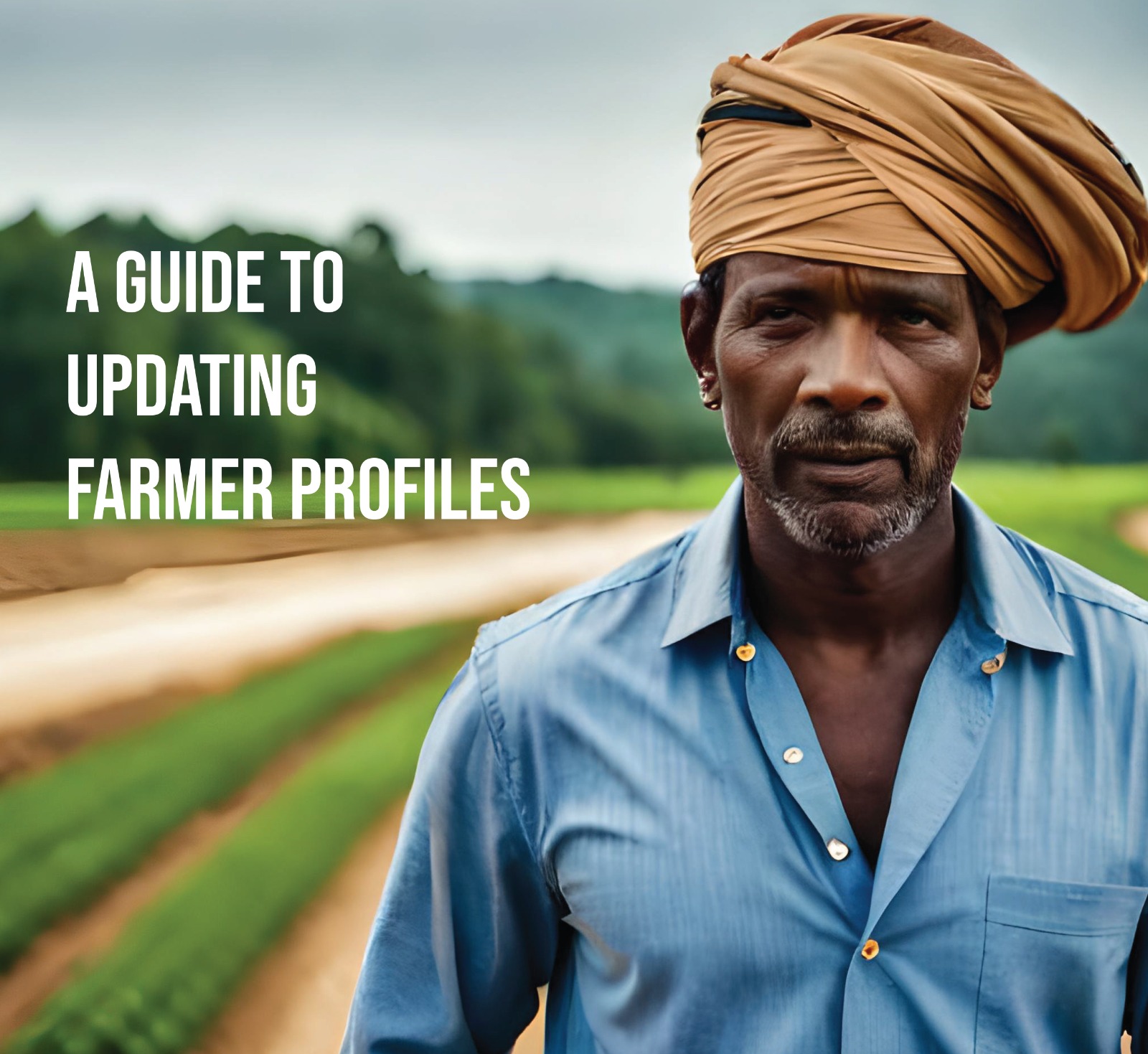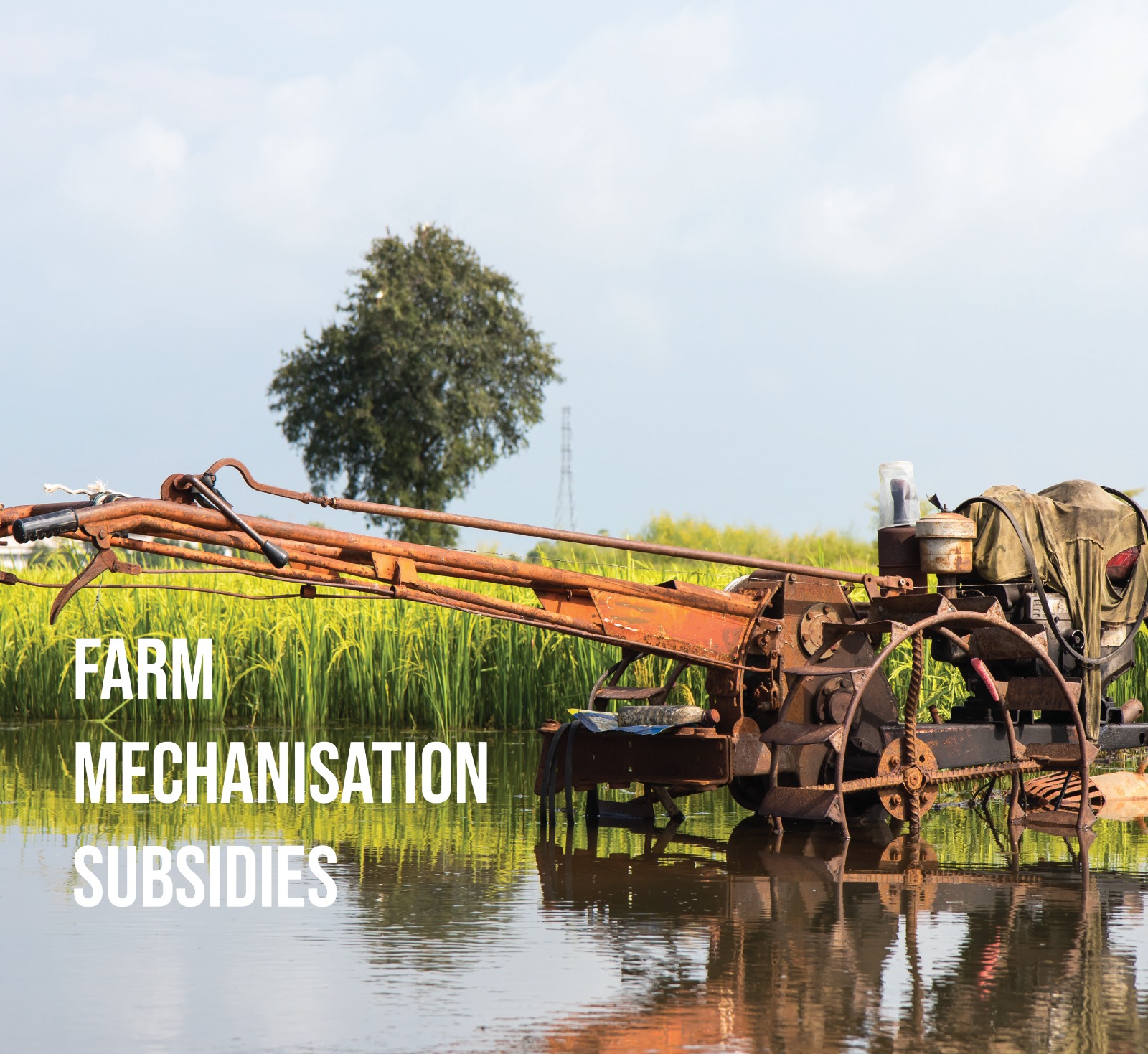Promoting Sustainable Agriculture: The National Food Security Mission’s Support for Oil Palm Cultivation at Odisha One Portal

- info.sonydig
- Apr 29, 2024
- No Comments
The National Food Security Mission (NFSM) is a vibrant initiative of the Indian government, aimed at ensuring food security through sustainable agriculture practices. It focuses on increasing the production of essential crops, including the promotion of oil palm cultivation, a step towards greener agriculture. In support of this mission, the Odisha One Portal emerges as a digital powerhouse, providing farmers with critical information, resources, and assistance in navigating the transition to sustainable agriculture with ease. This dual effort showcases a dedicated leap towards eco-friendly farming methods, ensuring the well-being of our planet while securing food for future generations.
The Importance of Sustainable Agriculture
Sustainable agriculture is more than a buzzword; it’s a necessary shift in how we think about growing our food. In a world where resources are finite, sustainable practices ensure that we can continue to produce food without depleting the earth’s natural resources or harming the environment. It’s about creating a system that can meet today’s needs while ensuring future generations can do the same. Sustainable agriculture focuses on conserving water, reducing the use of harmful pesticides and fertilizers, promoting biodiversity, and improving soil health. By adopting these practices, farmers not only contribute to the global fight against climate change but also safeguard their livelihoods by creating more resilient agricultural systems.
Overview of Oil Palm Cultivation
Oil palm cultivation is often heralded as a potentially sustainable crop, given its high yield and versatility. This tropical plant is the source of palm oil, a commodity in high demand worldwide for cooking, cosmetics, and even as a biofuel. When managed correctly, oil palm plantations can provide an efficient way to produce a significant amount of oil from a relatively small land area, which is less taxing on the planet than other oil-producing crops.
However, it’s important to note that the sustainability of oil palm cultivation hinges on responsible agricultural practices. These include avoiding deforestation, preserving natural habitats, and maintaining biodiversity. Additionally, sustainable management practices can help mitigate the emission of greenhouse gases and ensure that the cultivation benefits local communities socially and economically.
In regions like Odisha, the integration of oil palm cultivation within the framework of the National Food Security Mission (NFSM) is an example of how agricultural policies can support the transition towards more sustainable farming methods. By providing resources, information, and support through platforms like the Odisha One Portal, the NFSM encourages farmers to adopt oil palm cultivation in a way that’s both productive and sustainable. This approach not only supports the country’s food security goals but also aligns with broader environmental objectives.
Understanding the balance between productivity and sustainability is key to appreciating the role of oil palm cultivation within sustainable agriculture. When done right, it offers a pathway to meet the growing demand for vegetable oils without compromising the health of our planet. It’s about taking the long view – producing enough for today while ensuring that we leave a fertile, viable earth for future generations.
Role of the National Food Security Mission in Promoting Sustainable Agriculture
The National Food Security Mission (NFSM) is a pivotal program launched by the Government of India with a goal to enhance agricultural productivity and ensure food security in the country. But it’s not just about producing more food; it’s about doing so in a way that’s sustainable and ensures the well-being of both the planet and its people. How does the NFSM achieve this, particularly with its focus on oil palm cultivation? It’s through a multi-faceted approach that includes providing support for high-quality seeds, encouraging the use of eco-friendly fertilizers, facilitating irrigation techniques that conserve water, and offering training sessions for farmers on sustainable farming practices. By promoting oil palm cultivation as a part of its strategy, the NFSM is leveraging a crop that not only has high yield potential but can also be a sustainable choice due to its efficiency and the lesser need for intensive inputs compared to other crops.
The Odisha One Portal: A Platform for Oil Palm Cultivation
The Odisha One Portal stands as a testament to the state’s commitment to advancing agricultural practices that are both progressive and sustainable. This digital platform is a one-stop solution for farmers and agri-entrepreneurs interested in oil palm cultivation, offering a seamless way to access a wide array of services and information.
- Ease of Access: The portal provides straightforward access to information about the oil palm cultivation process, soil health, water resources, and best practices for sustainable farming.
- Application and Approvals: Through the Odisha One Portal, farmers can effortlessly apply for various government schemes and programs that support oil palm cultivation. The streamlined process ensures faster review and approval times, reducing the bureaucratic hurdles that farmers often face.
- Training and Support: The portal is not just about paperwork and applications; it’s also a hub for education and skill development. Farmers can access training modules, videos, and other resources to improve their knowledge about sustainable oil palm cultivation, directly enhancing their capacity for success.
The Odisha One Portal exemplifies how technology can be harnessed to promote sustainable agriculture. By making oil palm cultivation more accessible and manageable, the platform aligns with the broader goals of the National Food Security Mission, ensuring that India’s agricultural practices are sustainable, efficient, and conducive to long-term food security.
Benefits of Oil Palm Cultivation
Oil palm cultivation, endorsed by the National Food Security Mission (NFSM) on the Odisha One Portal, isn’t just about boosting the agricultural economy; it’s a step towards sustainable agriculture with myriad benefits. Let’s dive into why this is seen as a green thumb’s dream.
Firstly, oil palm trees are incredibly efficient producers of vegetable oil. Compared to other oilseed crops, oil palms yield up to 10 times more oil per unit area. This means farmers can produce more with less land, easing the pressure on our precious forests and habitats. Imagine the productivity of a small patch of land skyrocketing, all while reducing the need to clear more land for agriculture. That’s the oil palm advantage.
Another significant benefit is the economic upliftment of local farmers. With the support of the National Food Security Mission through the Odisha One Portal, farmers receive the necessary training, seeds, and resources to embark on oil palm cultivation. This shift not only promises a steady income through higher yield but also fosters a direct connection to sustainable agricultural practices. Farmers learn the value of preserving their environment while ensuring their livelihood.
Moreover, oil palm cultivation can improve soil quality and contribute to carbon sequestration. The trees help protect against erosion while their dense foliage drops to the ground, enriching the soil with organic matter. This contributes to a healthier, more fertile earth, encouraging a cycle of growth and sustainability.
Challenges and Solutions in Oil Palm Cultivation
While the shift towards oil palm cultivation under the NFSM offers many advantages, it’s not without its challenges. One significant concern is the reliance on specific climatic conditions. Oil palms thrive in warm, humid climates, which means their cultivation is limited to specific regions.
However, the NFSM, through initiatives like the Odisha One Portal, is actively working to provide solutions. By offering detailed research and climatic data, the portal helps farmers in Odisha identify the most suitable areas for oil palm growth. This information is crucial for maximizing yields and ensuring the success of the cultivation efforts.
Another challenge is the initial cost and effort required to switch to oil palm cultivation. Transitioning from traditional crops to oil palms involves new techniques, tools, and understanding. To ease this transition, NFSM offers financial aid, training programs, and continuous support to ensure farmers have everything they need to succeed. This approach not only mitigates the challenge but also empowers farmers with knowledge and resources.
In essence, while there are challenges in adopting oil palm cultivation, the concerted efforts of the NFSM, along with the support infrastructure of the Odisha One Portal, provide robust solutions. These steps ensure that the shift towards more sustainable agriculture is both feasible and beneficial for all stakeholders involved.
Success Stories of Oil Palm Cultivation at Odisha One Portal
The initiative to promote oil palm cultivation through the Odisha One Portal, backed by the National Food Security Mission, has given rise to numerous success stories. Farmers who once struggled with the economic viability of traditional crops have witnessed a transformation in their agricultural practices and, subsequently, their livelihoods.
- Improved crop yield: Many farmers have reported a significant increase in their crop yield. The dedicated support and guidance provided by the initiative have enabled them to employ more efficient farming techniques.
- Enhanced income: With better crop yields comes an improved income. Farmers practicing oil palm cultivation under this mission have seen their earnings grow, helping lift their families out of economic hardship.
- Sustainable practices: The program also emphasizes sustainable agriculture practices. Farmers are now more conscious of water use, soil health, and the long-term sustainability of their land. This shift not only benefits them financially but also contributes to the overall wellbeing of our planet.
The stories emerging from the fields of Odisha are a testament to the potential of targeted government initiatives in transforming agriculture into a more profitable and sustainable venture.
Conclusion: The Future of Sustainable Agriculture through Oil Palm Cultivation
The National Food Security Mission’s push for oil palm cultivation at the Odisha One Portal is more than just a project; it’s a stride towards a greener, more sustainable future. By supporting oil palm cultivation, we’re investing in a solution that promises not only to enhance our food security but also to protect our environment. As we continue to adopt and support sustainable agriculture practices, the future looks promising. Together, we can make a significant impact, ensuring a healthier planet for generations to come. Let’s keep moving forward, embracing the changes that lead to a more sustainable world.
Prerequisite Documents:
NFSM-oil palm
Department
- Establishment of Machinery Banks for Custom Hiring
- Farmer profile updation
- Farmer Registration & Updation
- Mukhyamantri Krushi Udyoga Yojana (MKUY)
- National Food Security Mission (NFSM) - Support for Cultivation and Expansion of Oil Palm
- Special Fruit Specific Scheme
- Subsidy for Farm Mechanisation (farm machinery and implements) in selected Villages of Aspirational Districts
- Sugarcane Harvester for Custom Hiring
- Supply of Potato, Vegetables, and Spices Minikits at Subsidized
- Application for Insurance Coverage for Livestock
- Broiler Poultry Farming
- Construction of Growout Tanks
- Construction of New Ponds for Brackish Water Aquaculture
- Construction of Rearing Ponds
- Fish Transport Vehicles
- Issuance of Postmortem Reports and Insurance Documents for Insurance Claim of livestock
- Layer Poultry Farming
- Mini Poultry Feed Mill
- Motorisation of Traditional Crafts
- Popularization of Fisheries Machinery/Equipment
- Promotion of intensive aquaculture through biofloc technology
- Providing boats(replacement) and nets for traditional fishermen
- Registration of fishing boats(Marine)
- Registration of New Brackish Water Fish Farms
- Renewal of Fishing License
- Renewal of Registration of Brackish Water Fish Farms and Hatcheries
- Semi-Commercial Duck Farming
- Semi-Commercial Pig Farming
- Small Scale Poultry Hatchery
- Fire Safety Certificate for Building(s) or Premises
- Fire Safety Certificate for Temporary Structure
- Fire Safety Recommendation for Proposed Building(s)
- Fire Safety Recommendation for Temporary Structure
- Supply of Copy of Fire Certificate for Fire Incident in Insured Premises below 10 Lakh
- Supply of Copy of Fire Certificate for Fire Incident without Insurance
- Supply of Copy of Fire Report
- Amendment / Cancellation of Registration - Registration of Trade Union(M-18)-Labour(The Trade Unions Act, 1926 And Regulation, 1941)
- Amendment of Licence under Contract Labour Act
- Amendment of license under Factories Act 1948
- Amendment of RC under Orissa Shops & Commercial Establishments Act, 1956 And Orissa Rules 1958
- Amendment of Registration Certificate - Registration of Establishment(M-9)-Labour (The Building & Other Construction Workers (RE&CS) Act, 1996 and its Odisha Rules, 2002)
- Amendment/ Transfer of Registration - Registration of Motor Transport undertakings(M-12)-Labour (The Motor Transport Workers Act, 1961 And Orissa Rules, 1966)
- Ammendment of license under the Inter State Migrant Workmen Act 1979
- Ammendment of RC under Contract Labour Act
- Ammendment of RC under the Inter State Migrant Workmen Act 1979
- Annual Contributions
- Appeal for RC/license under the Inter State Migrant Workmen Act 1979
- Appeal for registration/Grant of license under Contract Labour Act
- Approval for extension plan for factories under Factories Act 1948
- Approval of erection permission for boilers under the Boilers Act 1923
- Approval of list of Holidays(M-16)-Labour(Odisha Industrial Establishments (National & Festival) Holidays Act, 1969 And Orissa Rules 1972)
- Approval of plan and permission to construct or take in to use of any building as factory under Factories Act 1948
- Approval of repair orders for boilers under the Boilers Act 1923
- Approval of steam pipeline drawings under the Boilers Act 1923
- Cancellation of License - The Beedi and Cigar Workers (CE) Act, 1966 And Orissa Rules, 1969
- Certification of Standing orders(M-17)-Labour (Industrial Employment (Standing Orders) Act, 1946 And Orissa Rules 1946)
- Death benefit
- Endorsement of Certificates of Boiler Attendants
- Endorsement of Welder's certificate
- Grant of Certificate for Manufacture of Boilers and Pressure Part Components - The Boilers Act, 1923
- Grant of Certificate of Registration - Registration of Trade Union(M-18)-Labour(The Trade Unions Act, 1926 And Regulation, 1941)
- Grant of Erector Certificate for Boiler and Steam pipelines - The Boilers Act, 1923
- Grant of Funeral expenses
- Grant of license for contractors under Contract Labour Act
- Grant of license for employment of migrant workmen in the recipient state under the Inter State Migrant Workmen Act 1979
- Grant of license for recruitment by the contractor in home state under the Inter State Migrant Workmen Act 1979
- Grant of license for recruitment by the local agent , who supply migrant workmen to the contractors of the outside state under the Inter State Migrant Workmen Act 1979
- Grant of Marriage assistance for marriage of Self / Dependent girl child
- Grant of Maternity benefit
- Grant of Repairer Certificate for Boilers and Steam pipelines - The Boilers Act, 1923
- Insured Person registration for Integrated Inventory Management System
- Intimation of BOE Certificate - Endorsement & Revalidation
- Modification of Standing orders(M-17)-Labour (Industrial Employment (Standing Orders)Act, 1946 And Orissa Rules 1946)
- Registration of boilers under the Boilers Act 1923
- Registration of Construction Worker
- Registration of Establishment - Registration of Motor Transport undertakings(M-12)-Labour (The Motor Transport Workers Act, 1961 And Orissa Rules, 1966)
- Registration of Establishment - The Beedi and Cigar Workers (CE) Act, 1966 And Orissa Rules, 1969
- Registration of establishment under Contract Labour Act
- Registration of establishment under the Inter State Migrant Workmen Act 1979
- Registration of Establishment(M-9)-Labour(The Building & Other Construction Workers (RE&CS) Act, 1996 and its Odisha Rules, 2002)
- Registration of RC under Orissa Shops & Commercial Establishments Act, 1956 And Orissa Rules 1958
- Registration/Grant of license under Factories Act 1948
- Reimbursement Claim of Medicine (RCM)
- Renewal of boilers and grant of short duration certificate under the Boilers Act 1923
- Renewal of Certificate for Manufacture of Boilers and Pressure Part Components - The Boilers Act, 1923
- Renewal of Erector Certificate for Boiler and Steam pipelines - The Boilers Act, 1923
- Renewal of License - The Beedi and Cigar Workers (CE) Act, 1966 And Orissa Rules, 1969
- Renewal of license of contractors under Contract Labour Act
- Renewal of license under Factories Act 1948
- Renewal of license under the Inter State Migrant Workmen Act 1979
- Renewal of Registration - Registration of Motor Transport undertakings(M-12)-Labour(The Motor Transport Workers Act, 1961 And Orissa Rules, 1966)
- Renewal of Repairer Certificate for Boilers and Steam pipelines - The Boilers Act, 1923
- Revalidation of Welder's certificate
- Transfer of license under Factories Act 1948
- Amendment of Byelaw of Registered Society (District level)
- Amendment of Registered Partnership Firm
- Amendment of the Bye-law of Registered Society (State Level)
- Apply for Conversion of Agricultural Land U/s 8(A) of OLR Act
- Apply for Demarcation (For Industries/Corporate Sectors only)
- Apply for Marriage Registration
- Apply for Mutation
- Apply for Partition of Land on Mutual Agreement U/s Sec 19(1)C of OLR Act
- Certified Copy of Previously Registered Deed
- Certify Copies of ROR
- Create UAI
- Dissolution of Partnership Firm
- Dissolution of Society
- Issuance of Caste Certificate
- Issuance of Guardianship Certificate
- Issuance of Income & Asset Certificate
- Issuance of Income Certificate
- Issuance of Legal Heir Certificate
- Issuance of OBC Certificate
- Issuance of Residence Certificate
- Issuance of SEBC Certificate
- Issuance of Solvency Certificate
- Issuance of Tribe Certificate
- Issue of Encumbrance Certificate
- Registration of Documents (Submission)
- Registration of Partnership Firm
- Registration of Society (where more than one district is involved -State Level Society)
- Registration of Society (where one district is involved)
- Issue of Certificate Verification (CHSE)
- Issue of duplicate copy of High School Certificate
- Issue of duplicate copy of the High School Mark sheet by Board of Secondary Education, Odisha.
- Issue of Migration Certificate
- Issue of Original High School Certificate –cum-Mark sheet by the Board of Secondary Education, Odisha
- Issue of Pass /Equivalence Certificate
- Issue of verification of Mark Sheet by CHSE
- Readdition of Marks on Manual Valuation (CHSE)
- Readdition of Marks on Screen Valuation (CHSE)
- Renewal of affiliation to the Colleges by CHSE
- Authentication of certificates under World Educational Society Employers (VSSUT)
- Duplicate / Name Correction Degree Certificate (BPUT)
- Duplicate / Name Correction Grade Sheet (s) (BPUT)
- Duplicate Degree Certificates (VSSUT)
- Duplicate of Printed Provisional Pass Certificate (CET & IGIT Saranga)
- Duplicate of Printed Provisional Pass Certificates (VSSUT)
- Final Exam Grade Sheet (CET & IGIT Saranga)
- Final Exam Grade Sheets (VSSUT)
- Migration Certificate (BPUT)
- Migration Certificate (VSSUT)
- Online Final Grade Sheet (s) (BPUT
- Online Provisional Pass Certificate (BPUT)
- Online Provisional Pass certificates (VSSUT)
- Online Semester Grade Sheet (s) (BPUT)
- Photocopy of used answer Booklet (s) by E-Mail (BPUT)
- Photocopy of used Answer Booklets (by-Email) (CET & IGIT Saranga)
- Photocopy of used Answer Booklets(by e-mail) (VSSUT)
- Provisional Certificate (CET & IGIT Saranga)
- Semester Grade Sheet (CET & IGIT Saranga)
- Semester Grade Sheets (VSSUT)
- Transcript (CET & IGIT Saranga)
- Transcript (s) (BPUT)
- Transcript (VSSUT)
- World Education Services (Academic Records Request Form) (BPUT)
- Admission of Disabled students in Special School
- Free laptop for students
- Online Application and issuance of PwD ID Cards
- Online Application and sanction of Marriage Incentives
- Online Application for MBPY Pension Scheme
- Online Application for NSAP Pension Schemes
- Online Application for Scholarships
- Online Grievance lodge system
- Online Registration for BBSA Camp
- Online Registration for NGOs















